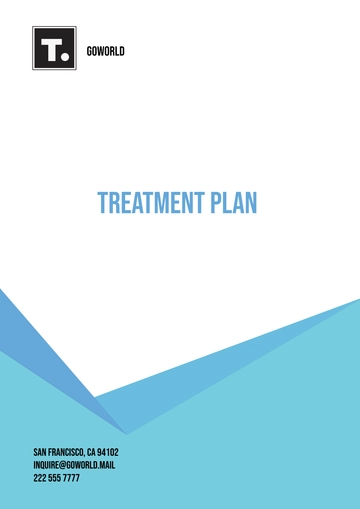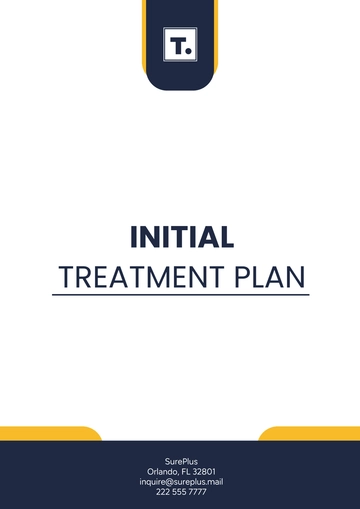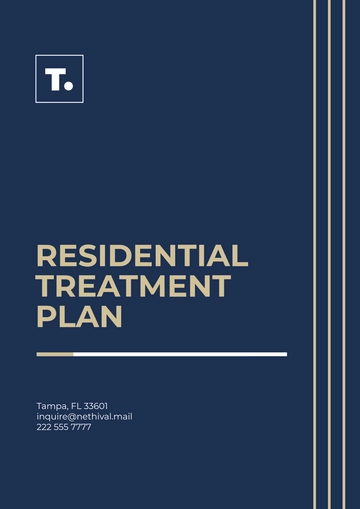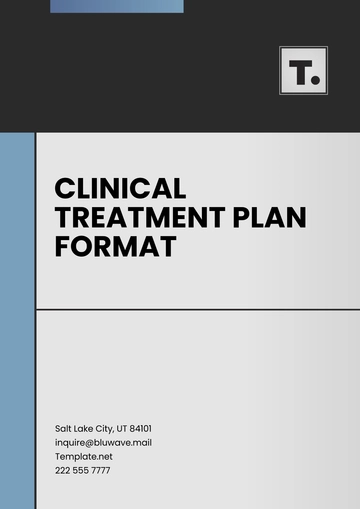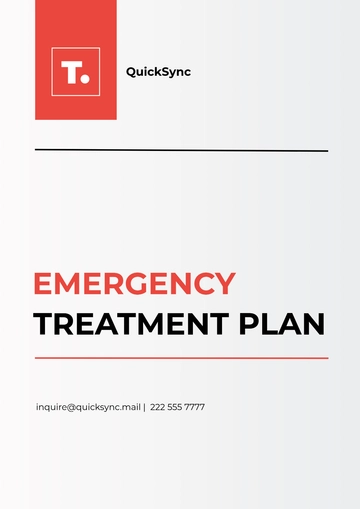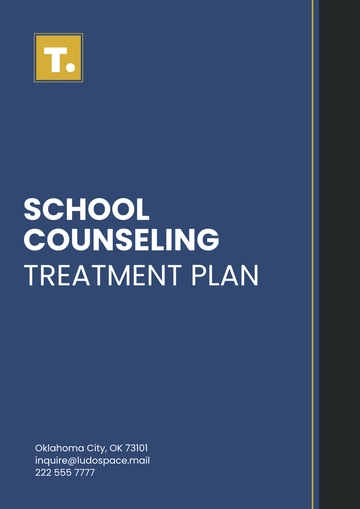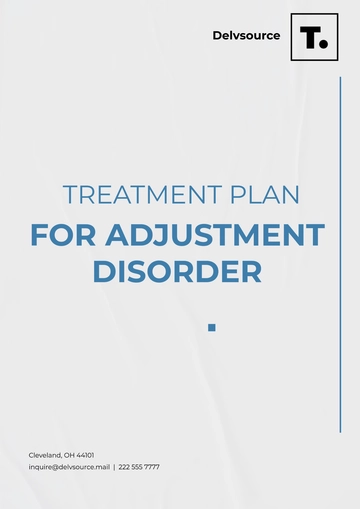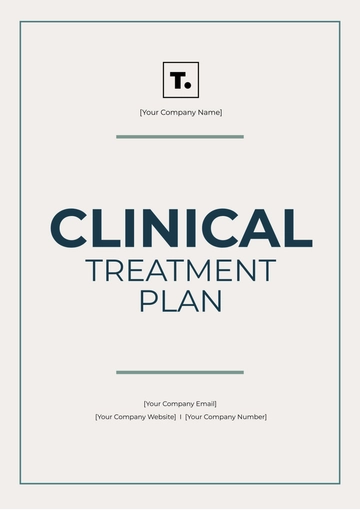Free Aesthetic Family Treatment Plan

1. Client Information:
Family Name: Anderson
Address: 1234 Maple Street, Springfield, IL 62701
Date of Plan: January 15, 2085
2. Treatment Team:
Primary Caregiver(s): John Anderson (Father), Emily Anderson (Mother)
Family Therapist: Dr. Susan Michaels, PhD, Licensed Family Therapist
Other Professionals Involved: Dr. Mark Thompson, Pediatrician (Sarah and David’s care), Maria Hernandez, School Counselor (Sarah)
3. Presenting Issues / Concerns:
Communication Breakdown: Family members struggle to communicate effectively, leading to misunderstandings, especially between John and Sarah.
Behavioral Issues with Children: Sarah and David have been exhibiting signs of emotional distress, particularly around school-related stress and sibling rivalry.
Parental Stress: Emily is experiencing significant stress due to balancing work and family life, leading to occasional emotional outbursts.
4. Assessment Summary:
Family Dynamics: The Anderson family is composed of four members—John, Emily, Sarah, and David. John works as a software engineer, while Emily is a marketing manager. Both parents are dedicated but often find it difficult to prioritize family time due to their busy careers. Sarah, a high school sophomore, is dealing with academic pressures, while David, a young child in elementary school, struggles with attention issues.
Individual Concerns:
John: Feelings of frustration due to lack of time for family and the escalating conflicts with Sarah.
Emily: Burnout from juggling her professional responsibilities and managing household duties.
Sarah: Increased anxiety around school performance, leading to occasional withdrawal and defiance toward parents.
David: Impulsive behaviors in school and at home, seeking attention in negative ways.
Strengths: The family has a strong commitment to improving their relationships, with both parents attending therapy sessions willingly and showing a desire to address their children's emotional needs.
Goals: Strengthen family communication, improve conflict resolution, and provide emotional support for Sarah and David in handling stress.
5. Treatment Goals:
Goal 1: Improve Family Communication
Specific Objectives:
Hold weekly family meetings to openly discuss issues and share feelings.
Implement active listening techniques during conversations.
Set a schedule for "screen-free" family time to foster face-to-face interactions.
Timeline: By March 15, 2085, the family will have established a routine for weekly family meetings and screen-free evenings.
Goal 2: Address Behavioral Issues with Sarah and David
Specific Objectives:
Enroll Sarah in weekly stress management sessions with a school counselor.
Set up a reward system to encourage positive behavior for David and address impulsive tendencies.
Schedule one-on-one time for John and David to improve their father-son relationship.
Timeline: By April 30, 2085, Sarah will be attending her stress management sessions, and David will begin to show improvements in attention and behavior at home.
Goal 3: Reduce Parental Stress and Enhance Work-Life Balance
Specific Objectives:
Emily will start attending bi-weekly therapy sessions to manage work-life balance and stress.
John will actively participate in family events and support Emily by managing household responsibilities on weekends.
Both parents will allocate at least one weekend a month for family outings or activities.
Timeline: By May 15, 2085, Emily will feel more supported, and the family will have completed at least one weekend trip together.
6. Interventions and Approaches:
Therapeutic Approaches: Family Systems Therapy with an emphasis on communication techniques and conflict resolution.
Individual Counseling Sessions: Sarah will attend weekly sessions with a school counselor to manage her academic stress. David will participate in bi-weekly therapy focused on impulsivity and attention issues.
Family Counseling Sessions: Bi-weekly family therapy sessions to improve overall dynamics, strengthen bonds, and address ongoing challenges.
Parenting Support/Training: Emily and John will attend a monthly parenting seminar on managing adolescent stress and fostering positive sibling relationships.
Homework or Activities:
John and Sarah: Practice communication skills by engaging in a 15-minute “check-in” conversation daily.
Emily and David: Engage in collaborative play activities that require teamwork and focus, like board games or puzzles.
7. Evaluation and Monitoring:
Progress Review: Monthly review of the family’s progress toward their goals, conducted by Dr. Susan Michaels.
Frequency of Review: The first formal review will occur on February 15, 2085, followed by monthly reviews.
Family Feedback: Feedback will be gathered during family therapy sessions through open discussions and anonymous surveys if necessary.
Adjustments: If progress is insufficient, the treatment plan will be revised to address specific obstacles, such as increasing individual therapy sessions or adjusting goals.
8. Signature and Date:
Family Therapist Signature: Dr. [Your Name], PhD, Licensed Family Therapist
Date: January 15, 2085Family Member(s) Signature:
 John Anderson
John Anderson Emily Anderson
Emily Anderson Sarah Anderson
Sarah Anderson David Anderson
David Anderson
Date: January 15, 2085
- 100% Customizable, free editor
- Access 1 Million+ Templates, photo’s & graphics
- Download or share as a template
- Click and replace photos, graphics, text, backgrounds
- Resize, crop, AI write & more
- Access advanced editor
Ensure seamless family care with Template.net’s Aesthetic Family Treatment Plan Template. Fully customizable and editable, this template offers a visually appealing design for family treatment planning. Modify it effortlessly in our Ai Editor Tool to reflect personalized family care strategies. Perfect for professionals seeking beauty and functionality.
You may also like
- Finance Plan
- Construction Plan
- Sales Plan
- Development Plan
- Career Plan
- Budget Plan
- HR Plan
- Education Plan
- Transition Plan
- Work Plan
- Training Plan
- Communication Plan
- Operation Plan
- Health And Safety Plan
- Strategy Plan
- Professional Development Plan
- Advertising Plan
- Risk Management Plan
- Restaurant Plan
- School Plan
- Nursing Home Patient Care Plan
- Nursing Care Plan
- Plan Event
- Startup Plan
- Social Media Plan
- Staffing Plan
- Annual Plan
- Content Plan
- Payment Plan
- Implementation Plan
- Hotel Plan
- Workout Plan
- Accounting Plan
- Campaign Plan
- Essay Plan
- 30 60 90 Day Plan
- Research Plan
- Recruitment Plan
- 90 Day Plan
- Quarterly Plan
- Emergency Plan
- 5 Year Plan
- Gym Plan
- Personal Plan
- IT and Software Plan
- Treatment Plan
- Real Estate Plan
- Law Firm Plan
- Healthcare Plan
- Improvement Plan
- Media Plan
- 5 Year Business Plan
- Learning Plan
- Marketing Campaign Plan
- Travel Agency Plan
- Cleaning Services Plan
- Interior Design Plan
- Performance Plan
- PR Plan
- Birth Plan
- Life Plan
- SEO Plan
- Disaster Recovery Plan
- Continuity Plan
- Launch Plan
- Legal Plan
- Behavior Plan
- Performance Improvement Plan
- Salon Plan
- Security Plan
- Security Management Plan
- Employee Development Plan
- Quality Plan
- Service Improvement Plan
- Growth Plan
- Incident Response Plan
- Basketball Plan
- Emergency Action Plan
- Product Launch Plan
- Spa Plan
- Employee Training Plan
- Data Analysis Plan
- Employee Action Plan
- Territory Plan
- Audit Plan
- Classroom Plan
- Activity Plan
- Parenting Plan
- Care Plan
- Project Execution Plan
- Exercise Plan
- Internship Plan
- Software Development Plan
- Continuous Improvement Plan
- Leave Plan
- 90 Day Sales Plan
- Advertising Agency Plan
- Employee Transition Plan
- Smart Action Plan
- Workplace Safety Plan
- Behavior Change Plan
- Contingency Plan
- Continuity of Operations Plan
- Health Plan
- Quality Control Plan
- Self Plan
- Sports Development Plan
- Change Management Plan
- Ecommerce Plan
- Personal Financial Plan
- Process Improvement Plan
- 30-60-90 Day Sales Plan
- Crisis Management Plan
- Engagement Plan
- Execution Plan
- Pandemic Plan
- Quality Assurance Plan
- Service Continuity Plan
- Agile Project Plan
- Fundraising Plan
- Job Transition Plan
- Asset Maintenance Plan
- Maintenance Plan
- Software Test Plan
- Staff Training and Development Plan
- 3 Year Plan
- Brand Activation Plan
- Release Plan
- Resource Plan
- Risk Mitigation Plan
- Teacher Plan
- 30 60 90 Day Plan for New Manager
- Food Safety Plan
- Food Truck Plan
- Hiring Plan
- Quality Management Plan
- Wellness Plan
- Behavior Intervention Plan
- Bonus Plan
- Investment Plan
- Maternity Leave Plan
- Pandemic Response Plan
- Succession Planning
- Coaching Plan
- Configuration Management Plan
- Remote Work Plan
- Self Care Plan
- Teaching Plan
- 100-Day Plan
- HACCP Plan
- Student Plan
- Sustainability Plan
- 30 60 90 Day Plan for Interview
- Access Plan
- Site Specific Safety Plan
